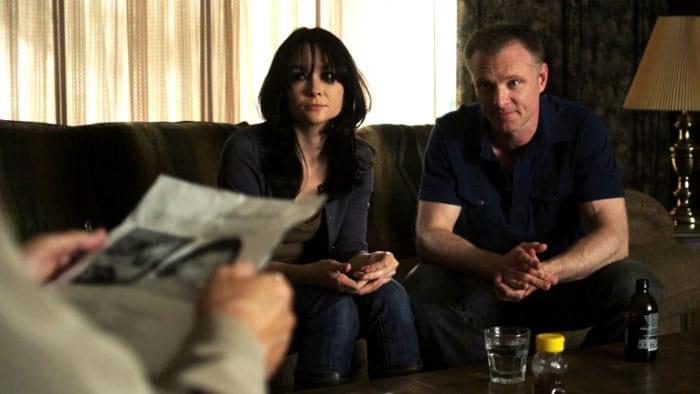
BOOTLEG FILES 171: “Hercules and the Tyrants of Babylon” (1964 Italian muscleman epic).
LAST SEEN: Available for online viewing at Public Domain Torrents.
AMERICAN HOME VIDEO: Only in public domain bootlegs.
REASON FOR DISAPPEARANCE: It’s pretty flabby.
CHANCES OF SEEING A DVD RELEASE: No one is going to rescue this orphan movie!
The Italian film industry doesn’t make Hercules movies anymore, but back in the late 1950s and early 1960s it didn’t stop making them. For every Fellini or Visconti art film to come out of Rome, there were at least 50 peplum romps centered around the adventures of Hercules, Samson, Goliath, Maciste, Atlas, the Sons of Hercules and any variation of the muscleman-in-a-loincloth character.
The madness began with the 1957 “Hercules” starring Steve Reeves, an American bodybuilder whose previous claim to movie fame was a bit part as a gym rat in the MGM musical “Athena” and a small role as a cop in Edward D. Wood Jr.’s egregious “Jail Bait.” “Hercules” turned out to be a surprise international success and a sequel, “Hercules Unchained,” was quickly cobbled together, with Reeves reprising the Hercules role. However, Reeves got tired of the character and immediately moved on to other low-budget adventure films.
But the Italians weren’t willing to retire Hercules and an endless skein of cheaply-made flicks featuring the character were turned out. The fact all of these films looked alike (Hercules successfully fights armies, sorcerers, evil kings, etc.) didn’t matter to the producers or the audiences. Nor was Steve Reeves indispensable to the equation. Various bodybuilders were recruited to fill Reeves’ sandals, including one-time Tarzan Gordon Scott, Hungarian big boy Mickey Hargitay and British bicep flexer Reg Park. It didn’t matter if these muscleheads couldn’t act – the films were inevitably (and ineptly) dubbed for their American release.
By 1964, the Hercules well was running pretty dry, as witnessed by “Hercules and the Tyrants of Babylon.” By now, the role went to someone named Rock Stevens, who had no problem filling the screen with his beefy physique but had endless difficulties essaying the role of an action hero (you’ll learn why in a moment).
Who are the Tyrants of Babylon? They are a trio of adult royal siblings who jointly inherited the throne from their late father. Salman Osar is the petulant militarist who sulks and sneers in a manner reminiscent of Donald Rumsfeld during a Pentagon press conference. His brother Azzur is the brainy, plotting one who views his corrupt landscape with cheerful malevolence. Their sister Asparia wears elaborate hair extensions, exaggerated false eyelashes, and so much eye shadow that it’s a wonder she can keep her eyelids open. Together these siblings are hailed as the “Kings of Babylon” (never mind that Asparia is a funny-looking king).
Anyhow, Babylon needs slave labor and a recent shipment of captives from Greece more than fills the current surplus. However, there’s a wild card in the mix: the Queen of the Hellenes (or Greeks, as the Greeks were called way back when) is among the slaves. The Assyrian king ambles over from across the border and tries to buy all of the Greek slaves from the Babylonian monarchs with the hope of locating that Greek regent in the mix. But the Babylonian trio discover his sudden interest in Greek slaves and decide to locate the captured queen for themselves.
However, the wily Greeks won’t allow their beloved queen to be taken. When a dozen women (including the queen) are tied to stakes in the middle of a quarry, they refuse to divulge their leader’s identity. The queen, not wanted to see her subjects in pain, eventually cries out: “I am the Queen of the Hellenes!” The other women, who clearly had “Spartacus” in their Netflix queue, immediately start yelling with equal fervor: “No, I’m the Queen of the Hellenes!” For several minutes, we are treated to the sight and sounds of a dozen tied-up women yelling “No, I’m the Queen of the Hellenes!”
So where’s Hercules? He shleps into Babylon in search of his missing queen. The three monarchs try to win his favor by greeting him as a celebrity guest. There’s even a banquet in his honor. However, during the banquet Hercules is challenged to fight against six muscular Babylonian soldiers. Hercules dispatches them with a couple of punches, but it appears one of his challengers was swinging a booby-trapped club that ejected knives.
Hercules realizes he’s in danger and he doubles up his effort to find the Queen of the Hellenes. That takes about 10 minutes to achieve, but then Hercules discovers something even more intriguing: it appears that Asparia rigged up a giant wheel in one of the basements of the royal palace. The wheel is linked to chains that are, in turn, linked to the foundations of the palace and various buildings throughout the city. It requires at least 100 men to turn this giant wheel, which would then pull the chains that would pull away the foundations to the buildings, which in turn would cause the Babylonian skyline to crumble. Asparia planned to activate that destructive wheel in a coup against her brothers, but Hercules prematurely spoils the plan by spinning the wheel on his own. Babylon crumbles and all of the bad guys are, not surprisingly, killed.
As for Hercules, he escapes with nary a scratch and leads the liberated Greek slaves in a brief journey across a desert. He then points to the sandy horizon and proclaims that the Queen and her subjects have returned to their homeland – which is rather surprising, since Babylon (today’s Iraq) isn’t located a short walk away from Greece. Before anyone can question Hercules’ peculiar take on geography, “The End” flashes on the screen.
The biggest problem with this film is actually the biggest person in the film: the six-foot-four Rock Stevens as Hercules. For starters, this Rock seemed strangely uncoordinated when it came to physical exertion. Even the simple act of running across the field looked like a challenge to this big guy, who visibly huffed and puffed in his trotting, and the peplum requirements to swing clubs, swords and fists in fight scenes seemed like spastic endeavors. This is the rare Hercules that you don’t root for – in fact, you feel like giving him a chair and a cup of tea.
In fairness, Rock Stevens was barely ready for this role. He wasn’t an actor – he was a former winner of the Mr. Indiana bodybuilding championship who’s only previous performance was a gag cameo as Tarzan on Jack Benny’s TV show. However, the Italian producers seemed to like him and cast him several other peplum quickies following the conclusion of this production. He eventually returned to America and snagged a small role in “Muscle Beach Party,” which required little more than showing off his considerable physique.
However, Rock Stevens eventually decided to get serious about a career in acting. He ditched that patently phony screen moniker in favor of his real name: Peter Lupus. Two years after “Hercules and the Tyrants of Babylon,” Lupus secured the role that defined his career, as Willy Armitage in the long-running TV series “Mission: Impossible.” Lupus would later become part of another cult-worthy TV show, playing Detective Norberg in “Police Squad!” This could’ve brought him back to the big screen when “Police Squad!’ was turned into “The Naked Gun” film series, but unfortunately Lupus’ role was recast with O.J. Simpson.
American International Pictures acquired the U.S. rights to “Hercules and the Tyrants of Babylon.” The distributor may have planned to unleash the flick in theaters (a rather striking poster for the film’s American release was created), but it wound up being sold directly to television instead. For years, “Hercules and the Tyrants of Babylon” played on local TV stations. But the distributor neglected to renew the movie’s copyright and the movie lapsed into the public domain, where it has been repeatedly bootlegged with shoddy dupes. The copy I obtained was from a $1 DVD at Wal-Mart, and the faded film clearly came from a well-worn print designed for TV broadcast (complete with awkwardly timed fade-outs to accommodate commercial breaks).
“Hercules and the Tyrants of Babylon” will probably remain in public domain hell for eternity – this is not the type of film that anyone will be eager to reclaim and restore. And if you don’t wish to seek this one out, that’s okay – there’s always “Hercules vs the Hydra” or “Ulysses vs The Son of Hercules” or “Hercules vs the Moloch” or “Hercules Against the Sons of the Sun” or “Hercules vs the Sea Monster” or…damn, it’s enough to give a guy roid rage!
IMPORTANT NOTICE: The unauthorized duplication and distribution of copyright-protected material is not widely appreciated by the entertainment industry, and on occasion law enforcement personnel help boost their arrest quotas by collaring cheery cinephiles engaged in such activities. So if you are going to copy and sell bootleg videos, a word to the wise: don’t get caught. The purchase and ownership of bootleg videos, however, is perfectly legal and we think that’s just peachy! This column was brought to you by Phil Hall, a contributing editor at Film Threat and the man who knows where to get the good stuff…on video, that is.
Discuss The Bootleg Files in Back Talk>>>

